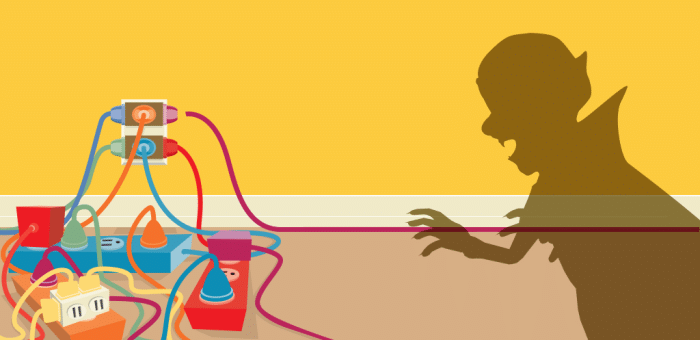Using Less Energy Helps Lower Your Home Energy Bills
No matter the size of your home, everyone wants to pay less on their electricity bills. Even with a low fixed rate for a long contract, you could have a large bill if you ignore your home energy usage. By introducing a few helpful energy efficiency tips into your daily routine, you can better manage how your home uses energy. This can lead to smaller energy bills even during the hottest summers and coldest winters.
We’ve organized our energy efficiency tips into five primary categories. We recommend completing one section at a time instead of tackling them all at once. After you’ve experienced the positive effects of that section, you can start on another one. The goal is to help you reduce your energy usage while keeping everyone in your home comfortable.
Your HVAC
Let’s start with the big one: the Heating, Ventilation, and Air Conditioning (HVAC) system for your home. On average, about half of your monthly energy bill usage comes from this single source. Hence, if you want to create an energy efficient home, you must start here.
- Get your HVAC unit inspected by a professional – This will judge the health of your system. It will increase your energy usage if it’s running poorly, which drives up your energy bill.
- Install a programmable thermostat – This single device can help you reduce your usage more than any other. By placing your HVAC on a regular schedule of settings, you can avoid heating and cooling your home when you’re not there.
- Use efficient temperatures – You can have the newest, most efficient HVAC on the market for your home, but if you’ve cranked up the heat or cranked down the air conditioner, you will use lots of energy. We recommend setting your AC at 75 °F during the day and 78 °F at night for warm months. Set your heater at 68 °F during the day and 65 °F at night for cold months. Yes, we know such settings might seem shocking, but your body will acclimate over time. We promise.
- Seal air leaks in doors and windows – If you have drafts in your home, that means you’re letting in air from the outside, which keeps your HVAC running when it could be idle.
- Change your air filter every 1-3 months – Follow the manufacturer’s guide with this recommendation, but what’s important is changing the filter so your air conditioner can run with maximum energy efficiency in mind.
- Change the direction of your ceiling fans – Give your HVAC a helping hand by circulating air. This moderates the temperatures people feel, so you don’t have to use more extreme thermostat settings. In warm months, have fans push air down into the room; for cold months, get your fans to direct air up to the ceiling.
In the Kitchen
You use more energy cooking in your kitchen than you think, especially in the summer. The more you use the stove and oven, the hotter your home becomes, and the more your air conditioner runs. By introducing energy efficiency to your kitchen, you can enjoy whipping up your favorite culinary creations while maintaining your energy usage.
- Use small appliances for cooking – With few exceptions, microwaves, toaster ovens, and rice cookers do the same work as your oven and stove. They will also use less electricity and generate less heat.
- Use the stove and oven only after 6 p.m. – If you have to use your large cooking appliances, do so later in the day, so you don’t add heat to your home that your air conditioner has to combat.
- Use the correct size vessel for burners – Using a small pot on a large burner wastes energy and fills your home with excess heat.
- Leave the oven door closed while cooking – Your oven has a light for a reason. Opening the door releases heat into your home, lowers the temperature inside the oven, and creates an inefficient cooking environment.
Doing Chores
No one likes using energy to do chores, but it’s essential to find ways where you can incorporate energy efficiency tactics to complete them.
- Wash clothes in cold water – Heating water is a significant source of energy usage. Unless you have a load of super-soiled clothes and need a deep cleaning, you should wash your everyday clothes in cold water.
- Wash and dry full loads – Laundry uses lots of electricity and the water needed and the long run times. You’re lowering two utility bills by running full loads – water and electric.
- Run heavy appliances after 6 p.m. – Like your oven in the earlier tip, save your laundry and dishes until nighttime. This decreases the overall heat load in your home, which means your air conditioner isn’t running non-stop to cool the place.
- Air-dry your dishes – The heat dry setting in your dishwasher is one of the more pointless uses of electricity in your home. Deactivate this option and open the dishwasher door when the wash cycle ends.
Home Maintenance
Most of these tips involve changing your habits and routines to help improve your home’s energy efficiency and lower your electricity bills. With this section, we introduce a bit of spending. While it can feel counterintuitive to ask you to spend money to save money, the return on investment you’ll experience can be significant.
- Install an insulating blanket around older water heaters. This is a quick fix to a water heater with some life left.
- Install low-flow faucets and showerheads – Water and energy use are interconnected more than most people think. By reducing the amount of water used for showers, baths, and cleaning, you reduce the energy used to heat that water. And both reductions will lower your utility bills.
- Improve your insulation – This is of the best ways to help your HVAC heat and cool your home with maximum energy efficiency. Proper insulation helps your home maintain a consistent temperature, so your air conditioner and furnace won’t get overworked.
- Install drapes and curtains – Think of this as insulation with pleasing aesthetics. Drapes and curtains can help block the sun on warm days and keep in heat on cool days. Any time you can regulate your home’s internal temperature, you can save money on heating and cooling.
- Replace all light bulbs with LED models. Another double-whammy, LED light bulbs both use less electricity and give off less heat as wasted energy. They’re 75-80% more efficient and last thousands of hours longer than traditional incandescent bulbs.
- Install ENERGY STAR appliances – This is the big one. We don’t recommend replacing all of your appliances with more efficient ones as a matter of course. Most of us can’t afford to do that. We recommend investing in ENERGY STAR appliances when it’s time to replace your current ones.
General Suggestions for Increased Energy Efficiency
Here are your tried-and-true suggestions for incremental yet important energy efficiency upgrades. They might seem small, but the effects are cumulative and substantial.
- Set your water heater at 120 °F – This is a lower temperature, safer for babies, children, and the elderly, and it’s 20 degrees lower than most factory settings. This could be a large difference in your heating and water bills.
- Unplug all consumer electronics whenever possible – Don’t leave your computer or television plugged in all night long. Your phone doesn’t need to be on a charger all night long since most phones only need a couple hours to charge. Even more, if a device is turned off when plugged in, it’s still using energy in the form of “vampire electricity.”
- Use power strips for electronics – There are some electronic devices you should leave on all night, including the router for your home Internet. We recommend purchasing “smart” power strips that let you turn off certain devices completely while keeping others plugged in.
- Turn off the lights – It’s the old standby, but it remains essential. Our rule of thumb: if you plan to be out of a room for more than 10 minutes, flip that switch as you’re leaving.
Energy efficiency in the home isn’t about going green or helping the environment – though those are nice side effects. It’s about helping your home use energy with greater effectiveness. It’s easier to lower your energy usage and create a smaller energy bill.
And isn’t that what we all want to see each month?


